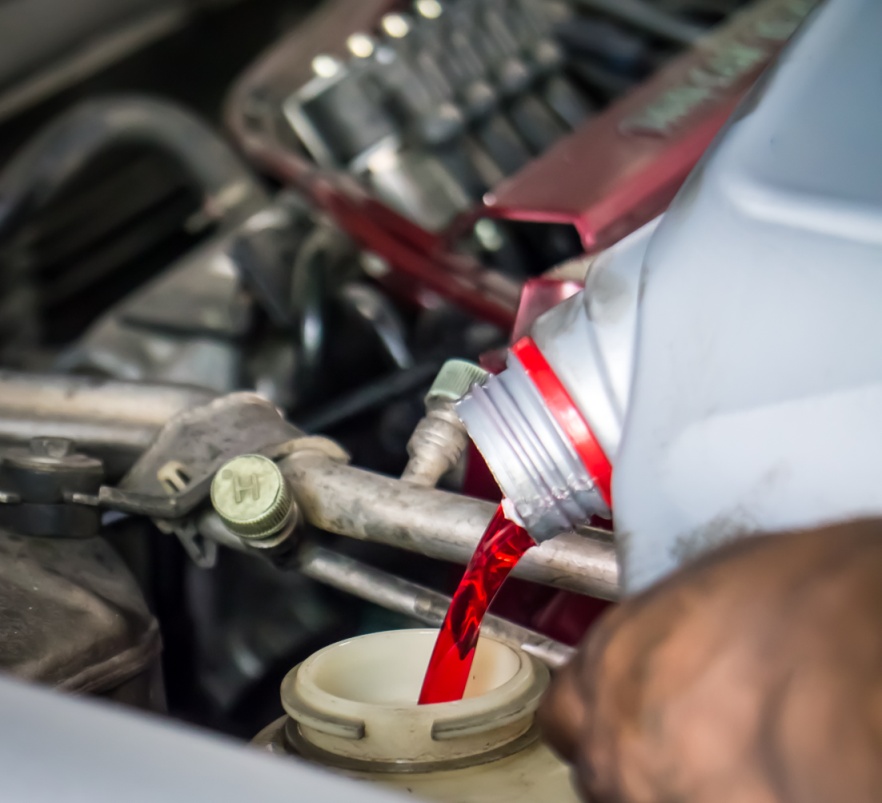When Should Transmission Fluid Be Changed?
You may be wondering just what is the purpose of transmission fluid? It keeps the surfaces and components of the transmission system lubricated to prevent excessive friction and overheating that would lead to transmission problems. It also serves as a viscous fluid that transmits power from the engine to the transmission.
So, when should transmission fluid be changed? Technically, transmission fluid could remain in your vehicle without ever changing it. However, you will find that most auto repair mechanics advise that you should have a transmission flush about every 50,000 miles. Over time, the components of transmission will wear out and start to present problems, such as the issues described below:
- Delayed Shifting. There may be a temporary delay after you move the gear stick to reverse or drive. The gear change cannot be activated immediately if there isn’t enough pressure.
- Difficult or Erratic Shifting. If there is a lot of dirt or residue in the transmission fluid, the gears will either change too fast or too slow. Other symptoms include abrupt up/down shifts, unusually high RPMs before a shift, erratic shifting, and groaning or grinding noise coming from the transmission.
- Gear Slippage. You may change gear, but then it seems to fall back out of that gear. The friction material on the clutches and transmission bands are no longer able to securely engage a gear.
- Transmission Overheats. In an automatic, the transmission fluid keeps the transmission unit from overheating. If overheating occurs, pull over immediately and let everything cool down. If the temperatures get to be over 240°F, serious damage could have taken place inside the transmission unit.
Tip to Remember: At least once a month, have the transmission fluid checked to see if it has the appropriate level or it still effective. If you put a lot of miles on your vehicle or tow heavy loads, have it checked at least every two weeks.
Wondering when should transmission fluid be changed? Contact our ASE Certified technicians at Expert Car Care today for more information about transmission repair and to schedule an appointment. Our auto shop proudly serves residents in the community of West Allis, WI, and the surrounding area.
when should transmission fluid be changed? Many mechanics recommend periodic transmission flush prevent potential problems from costly transmission repair.
You may be wondering just what is the purpose of transmission fluid? It keeps the surfaces and components of the transmission system lubricated to prevent excessive friction and overheating that would lead to transmission problems. It also serves as a viscous fluid that transmits power from the engine to the transmission.
So, when should transmission fluid be changed? Technically, transmission fluid could remain in your vehicle without ever changing it. However, you will find that most auto repair mechanics advise that you should have a transmission flush about every 50,000 miles. Over time, the components of transmission will wear out and start to present problems, such as the issues described below:
- Delayed Shifting. There may be a temporary delay after you move the gear stick to reverse or drive. The gear change cannot be activated immediately if there isn’t enough pressure.
- Difficult or Erratic Shifting. If there is a lot of dirt or residue in the transmission fluid, the gears will either change too fast or too slow. Other symptoms include abrupt up/down shifts, unusually high RPMs before a shift, erratic shifting, and groaning or grinding noise coming from the transmission.
- Gear Slippage. You may change gear, but then it seems to fall back out of that gear. The friction material on the clutches and transmission bands are no longer able to securely engage a gear.
- Transmission Overheats. In an automatic, the transmission fluid keeps the transmission unit from overheating. If overheating occurs, pull over immediately and let everything cool down. If the temperatures get to be over 240°F, serious damage could have taken place inside the transmission unit.
Tip to Remember: At least once a month, have the transmission fluid checked to see if it has the appropriate level or it still effective. If you put a lot of miles on your vehicle or tow heavy loads, have it checked at least every two weeks.
Wondering when should transmission fluid be changed? Contact our ASE Certified technicians at Expert Car Care today for more information about transmission repair and to schedule an appointment. Our auto shop proudly serves residents in the community of West Allis, WI, and the surrounding area.
